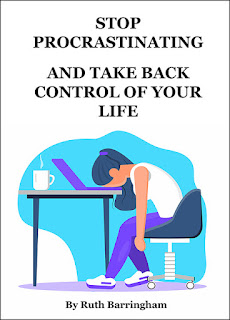I’ve been ill with a flu-type of virus that’s been going around. Nearly everyone I know has caught it in one level of severity or another. I guess it’s just part of winter flu season.
I rarely get ill, and even when I do it’s only just a bit of a touch of whatever dreaded lergy is doing the rounds at the time.
The reason I rarely get ill is because I pay attention to my health. I have a vegan (or plant based as they now call it) diet which means I don’t consume dead body parts or any animal products. When I was younger I ate meat like most people, but as an adult I looked into the logic and cruelty of slaughter houses and animal “farms” and how bad eating these animals is for our health, and decided it was a bad idea.
So I transitioned to being a vegetarian for many years and then cut animals out of my diet completely. And I’ve never looked back. In fact, I found that some of the things I was eating were making me ill. For example, I’ve always suffered from headaches. It didn’t take much to give me a headache and they were painful and long-lasting. I also constantly came down with colds. If someone had a cold, I knew I’d catch it because I always did.
Once I gave up dairy and eggs, my colds and headaches disappeared. Gone! Just like that. All my life I’d thought it was just my bad luck that I was susceptible to head colds and bad headaches, but it turned out to be my diet. For the last 3+ years I haven’t even been to see my GP at all because I’ve never had anything medically wrong with me. My health has been great. The last time I saw my GP was because I’d hurt my foot.
My usual good health is probably why, when I caught this flu bug, it took me completely by surprise. The worst thing about it is that it’s so long lasting and has been driving me crazy because I’m so used to being healthy.
It started three weeks ago. I woke up one day with an incredibly sore throat. It hurt so much I could barely swallow and my head hurt and my nose wouldn’t stop running.
I suffered through it for 7 days. It did start easing after the first 3 days but I felt miserable the whole time. The first day I thought I’d be ill for just that day. But nope. I spent the whole week laid on the couch, watching TV, napping, and feeling downright sorry for myself.
I even thought I’d try and get some writing done during that first week, but I found that I was too ill to think and I didn’t really want to sit up for too long either.
I thought about it while I was laid there wallowing in self-pity, trying to figure out how being ill meant that thinking was hard, after all, it wasn’t a physical thing. Thinking was just thinking. But even trying to concentrate on something on TV felt taxing and I kept nodding off.
I thought about reading instead, but just the thought of picking up a book felt like too much hard work, which didn’t make sense to me because I love to read.
After 5 days of kidding myself that I wasn’t really THAT ill and if I put my mind to it I’d be able to write, I gave in. I figured that when I had a regular job and I had a boss and had to go out to work every day, when I was too ill to work, I’d take a few days off to rest and get better so that I could go back to work as soon as possible.
That being the case, I figured that working at home shouldn't be any different and if I rested, I’d get better faster. After all, it worked when I had a regular job. I never thought of doing anything but getting better when I wasn’t working so that I wouldn’t miss too many days away from my job.
So that’s what I did. I laid down and did nothing but rest and nap, even though I didn’t want to, and it worked. By the eighth day, I was not only sitting up but moving around a little and I was back in my writing chair. But I still had to be careful not to overdo anything because even though I was up and about, everything I did, even mental things like reading and writing, felt exhausting.
And now it’s 3 weeks later and I still haven’t shifted the virus completely. To anyone looking at me I look fine and I’m living my usual life. But I still don’t feel 100% well and I’m not doing as much in a day as I usually do and I’ve been avoiding socialising because that seems way too hard right now, even short conversations seem hard. I’m not comfortable with socialising anyway, but now it feels harder than ever. It’s easier to stay at home and write and not talk to anyone, except Dean of course, who caught the same illness I did but only mildly for a couple of days and then he was okay again, although even he isn’t 100% yet either.
But what this whole experience has taught me is that (and it was a hard lesson because I’m not used to being ill anymore) is that I need to treat my writing as a job and if I’m ill it’s okay to take some time off to get better and not feel guilty about not getting my writing done.
And treating my writing as a job isn’t just good advice for when I’m ill, but for always.
That’s why I have set writing times every week to make sure I get to work and get my writing done.
Mission Critical For Life
Start Living Life On Your Terms By Pursuing Your True Life Mission
https://cheritonhousepublishing.com/books/MCFL.html




















